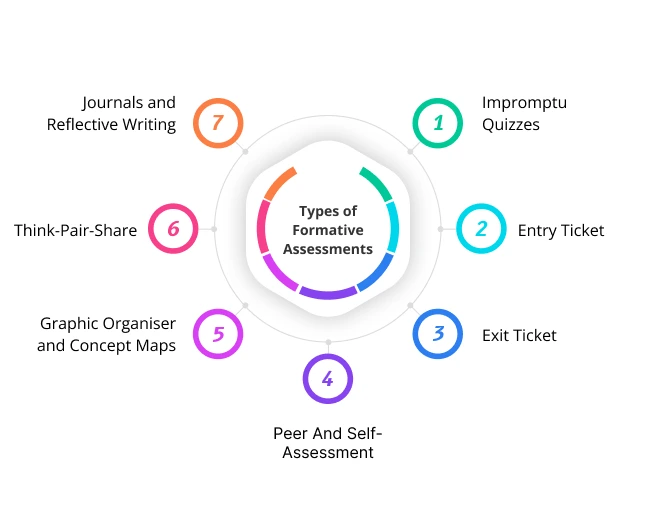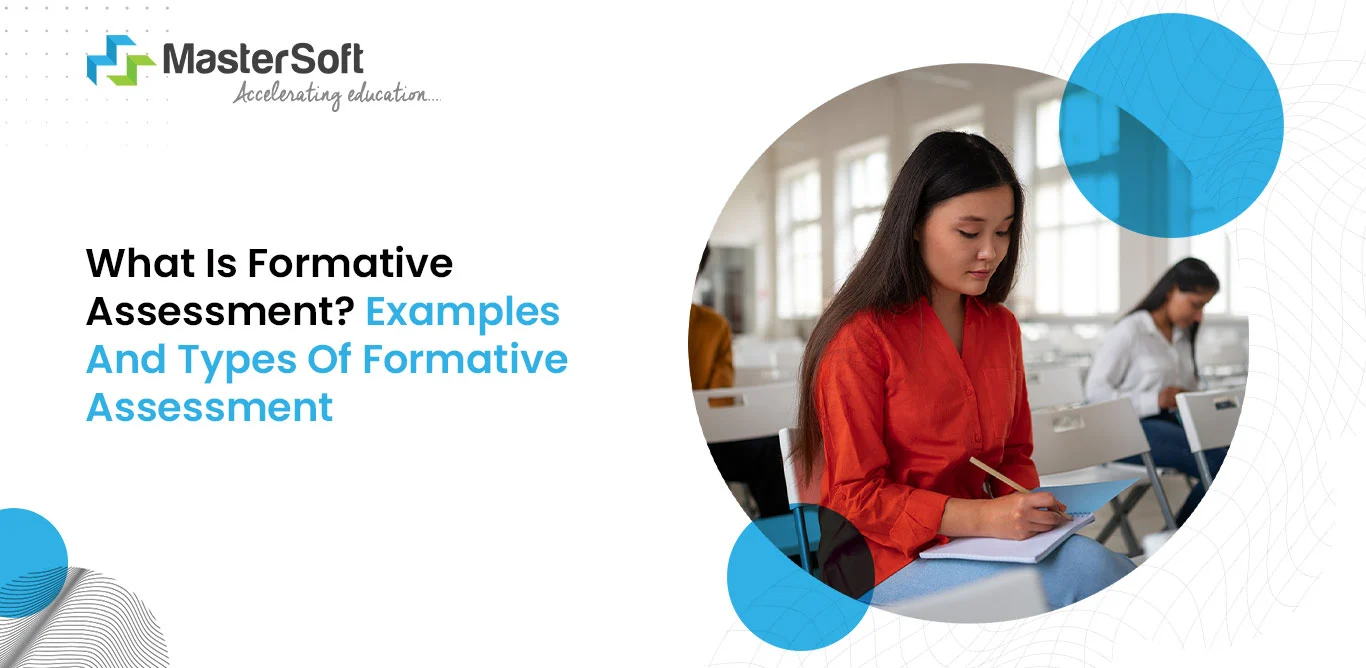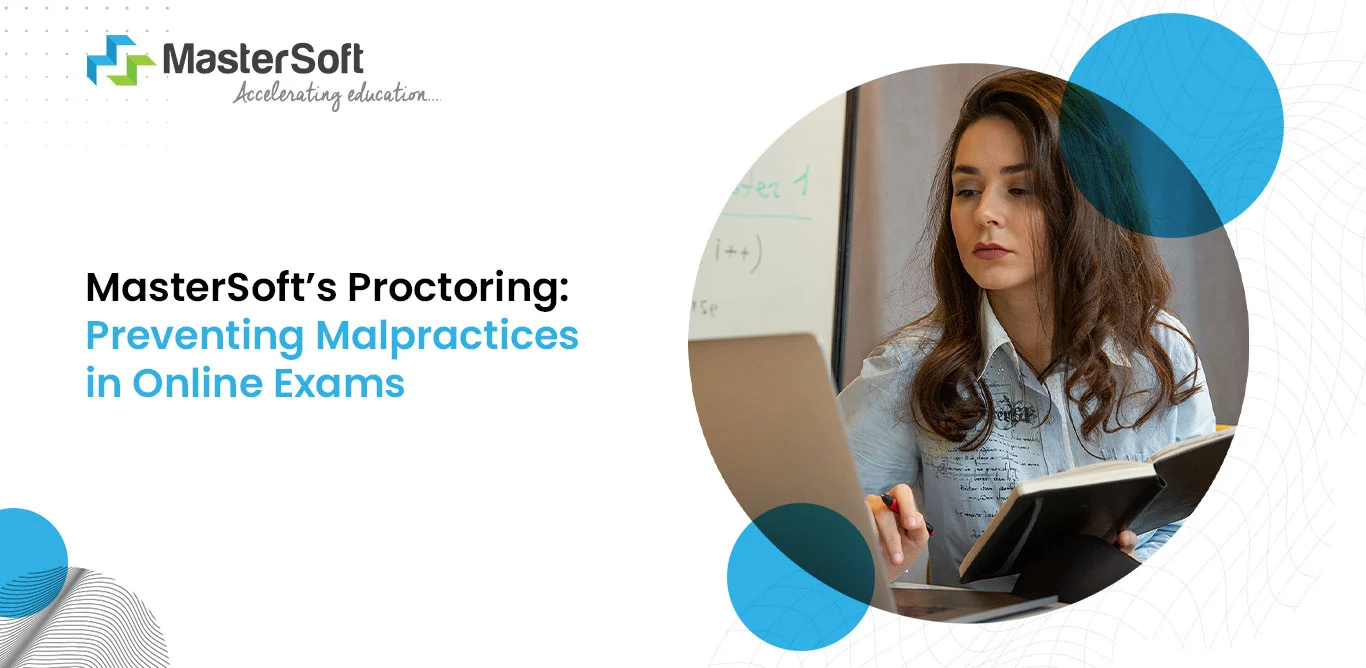Updated On 12, Feb 2025
Examinations are an indispensable part of the educational process as they help to measure student learning and adapt instructional methods. However, traditional examinations serve to assess the knowledge that students have attained by the end of a term or course.
But what about assessing ongoing progress? In contrast, formative assessment is a significant mechanism that helps continuously evaluate students. The focus is less on the marks or grades and more on students’ learning, understanding, and progress.
But what are formative assessments? Why are they important for student learning? Let’s have a look:
What are formative assessments?
Formative assessments are part of a pedagogical strategy that allows educators to assess student learning on a regular basis. These are informal tests that they can carry out at the end of each week or chapter and before the beginning of a class to assess prior or existing knowledge.
Teachers have the liberty to employ different kinds of questions, including group discussions, quizzes, self-assessments, peer reviews, etc. Furthermore, these assessments are flexible; therefore, teachers can adapt them according to various subjects, learning styles, and age groups.
A central component of the formative assessments is timely and constructive feedback, which teachers can share in real time. Consequently, students gain insights into their strengths and weak areas, leading to critical thinking and self-reflection on their learning.

Examples and Types of Formative Assessments
Teachers can implement various kinds of formative assessments, depending on how they want to assess students’ understanding and ongoing progress. Some of the common types of assessments are as follows:
1.Impromptu Quizzes
The concept of conducting unannounced pop quizzes might seem undesirable to students because they fear they might not be able to answer the questions correctly. Regardless, the objective of impromptu quizzes is not to assess whether or not students can provide accurate answers.
Impromptu quizzes help to determine students’ understanding levels and help teachers to ascertain if a certain topic needs further explanation. Besides, frequent quizzes reduce test anxiety and motivate students to engage with the learning material consistently.
Examples of impromptu quizzes include spontaneous question-and-answer sessions, quick multiple-choice or true-and-false quizzes, etc.
What is a Student Information System?
2. Entry Ticket
An entry ticket is a unique formative assessment example, which includes questions or a task that teachers conduct at the beginning of a class.
In case most students fail to answer questions or perform the given tasks, instructors can adapt the lesson by including a brief review before starting the new concept or material. Entry tickets can take the form of questions such as:
- What comes to your mind when I say nuclear energy?
- Which mathematical equation do you think people use in their day-to-day activities?
- Which sustainable energy will prove to be the most useful in the future?
The effectiveness of the entry ticket lies in aligning the entry ticket with the lesson objectives and should emphasise core concepts. Also, this assessment leads to active participation and personalised instruction.
3. Exit Ticket
Introducing a new topic and providing an in-depth explanation does not conclude the teaching process unless it includes a review of student learning. That is where exit tickets prove to be an effective tool for gathering insights into what students have learned. It helps to determine whether students have grasped an understanding of the concepts.
Furthermore, this is a targeted approach that aims to find out learning gaps among students and provide necessary explanations to struggling learners. Appropriate exit ticket question examples include:
- How would you summarise today’s lesson?
- Do you think whatever you learnt today has any practical applications?
- Does the concept have any impact on real-world issues?
These questions encourage students to think critically and make individualized conclusions based on their respective understanding.
4. Peer and Self-Assessment
Peer assessment is an evaluation technique wherein students review each other’s work and provide feedback, leading to enhanced collaboration. They evaluate the project or task and provide verbal or written comments, highlighting the positive aspects and suggestions for improvement.
Establishing clear criteria through rubrics or checklists is vital for this assessment method, and guiding students to provide helpful and specific feedback is equally important.
On the other hand, self-assessment encourages students to evaluate their learning by assessing what they have learned and pinpointing areas of confusion. They can integrate self-assessment into their daily academic activity to track their progress continuously.
5. Graphic Organiser and Concept Maps
Leveraging learning tools like the learning management system can enhance a student’s learning experience by providing them with varied resources. Students can use the tool to create and upload graphic organisers to streamline content in a structured format.
Simultaneously, they can use the system to develop concept maps, helping them establish connections between key ideas. In effect, concept maps provide a visual representation, allowing students to get a clear idea about subject topics. Some common examples include:
1. KWL ChartsThese are three-column charts that list the learning objectives:
- K (Existing knowledge—what they already know)
- W (Learning goal—what they want to know)
- L (Post-lesson learning—what they have learnt after teaching)
Teachers can implement KWL charts both before and after explaining a chapter to assess the progress.
2. FlowchartsThese are hierarchical step-by-step representations of an activity or concept that students can develop to break down a complex topic.
6. Think-Pair-Share
Think-pair-share is among the collaborative types of formative assessment, wherein teachers implement a structured discussion strategy through the following process.
- Presentation: Teachers present a question, problem, or topic in the class.
- Independent Thinking: Students think about the given topic or problem independently.
- Written Response: They write down their responses or perspectives after deliberate analysis.
- Pairing and Discussion: Teachers pair students with each other into groups of two or three, and they discuss their thoughts.
- Idea Exchange: Students compare and exchange their ideas and attempt to clarify their doubts.
- Classroom Sharing: In the last step of the process, each pair shares their discussion with the whole class verbally or through a multimedia presentation.
Teachers can highlight the key findings from each discussion and resolve any misconceptions or errors that might have occurred.
Online Assessment Test: Benefits Of Online Assessment Test Over The Offline Assessment Test
7. Journals and Reflective Writing
Journals and reflective writing encourage students to analyze their learning experience by reflecting on what they have learned. Teachers can encourage students to maintain a journal to document their thoughts, doubts, and achievements.
Students can use learning journals to write down their questions and reflections daily or weekly and set learning goals. For example, some key questions that they can address are:
- Which topics were a bit challenging to understand?
- Which topics were the easiest to understand?
- What is the best strategy to complete the assignment?
- How can I concentrate during an ongoing class?
Why are Formative Assessments Beneficial?
Formative assessments assess the ongoing progress of students and facilitate additional benefits like:
- Increases active participation: Motivates students to engage with the learning material and activities.
- Facilitates self-learning: Encourages students to take accountability for their learning process, fostering a growth mindset and sense of self-efficacy.
- Establishes continuous feedback: Provides insightful instruction and constructive criticism from teachers.
- Encourages collaborative learning: Improves communication and problem-solving skills among students.
- Develops critical and analytical thinking: Urges students to assess fact from fiction and make well-informed decisions.
In Conclusion
Formative assessment is an effective evaluation tool that educators can employ as a part of regular instructional activity. Some of the key formative assessment techniques, such as exit and entry tickets, impromptu quizzes, and debates, help create a dynamic learning environment. Furthermore, it contributes to enhancing students' problem-solving and critical-thinking abilities.
Secure and Robust Online Assessment System for Seamless Exam Conduction!
Mobile: 08448010216
Email:info@mastersofterp.com













